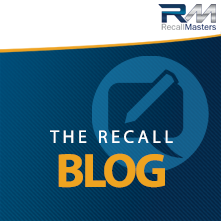Should Manufacturers Be Able to Recall Recalls?

Should Manufacturers Be Able to Recall Recalls?
According to an article posted on Ford Authority, Takata has taken a massive hit to the tune of a $1 billion settlement in the US, $25 million criminal fine, $125 million dollars to compensate victims and $850 million to compensate automakers. As a result, Takata has filed for bankruptcy and has to rely on an infusion of capital from another company to cover these costs.
Despite all this, Takata still manufactures airbags – the same airbags, using the same inflation chemicals that degrade over time. Manufacturers continue to use these airbags on their assembly lines for new vehicles, with full knowledge that these airbags will need to be replaced within the next 5 to 7 years.
The NHTSA recently recalled another 2.7 million vehicles with Takata airbags that pose a risk to consumers — adding to the 42 million already recalled. To date, these faulty airbags have been responsible for 17 deaths and 180 injuries worldwide.
While the Takata crisis remains in play, surprisingly, one manufacturer seeks reversal of a recent recall – a recall of a recall, so to speak. Ford Motor Company has taken exception to the latest recall, which includes more than 2 million Ford vehicles, and plans to fight the recall. Apparently, Ford does not believe that all the vehicles involved in the recall are affected, based on random field testing of these vehicles.
Of course, there are always mechanisms in place for manufacturers to appeal NHTSA recall decisions. While the data Ford has presented is not yet public knowledge, the choice to dispute NHTSA’s decision is a risky move. The Takata airbag recall is the largest recall in history and, with several deaths attributed to this recall, it has become a highly sensitive and volatile issue in the public domain. The fact is that there’s no reason to believe that ANY Takata airbags are safe for consumers – past or current.
Is NHTSA being hyper-cautious in the case of Takata airbags? Or does Ford have a right to seek more evidence in the matter? That debate has yet to be determined. However, in any recall of this size, the manufacturer’s reputation is damaged – especially when they have to notify consumers that their vehicles could potentially be unsafe and have to be taken into their dealership for repairs.
This is not the first time a manufacturer has appealed a recall. I don’t know whether Ford’s data is compelling enough to lift the current recall. What I do know is that consumer safety is of utmost importance. Based on the high-profile recall involved, it’s highly unlikely that Ford will win its appeal – but what if it turns out that Ford was right about this matter? What if 1,999,999 of the 2 million vehicles are without defect?
Well, what if that single vehicle places its driver and passengers at risk?
I believe that saving a single life is worth the cost and expense — regardless of the recall, Takata or otherwise. The NHTSA knows the cost and expense of issuing a recall — it’s a decision they don’t take don’t do it lightly.
On the other side, Ford’s appeal involves the most dangerous airbag in history, yet claims that affected vehicles are in fact safe. I hope they’re correct.
No matter what happens manufacturers, legislators and dealers should keep recalls front and center when choosing whether or not to place these vehicles in the hands of consumers. Based on Takata’s deadly missteps and tragic consequences, it’s better to error on the side of consumer safety.

